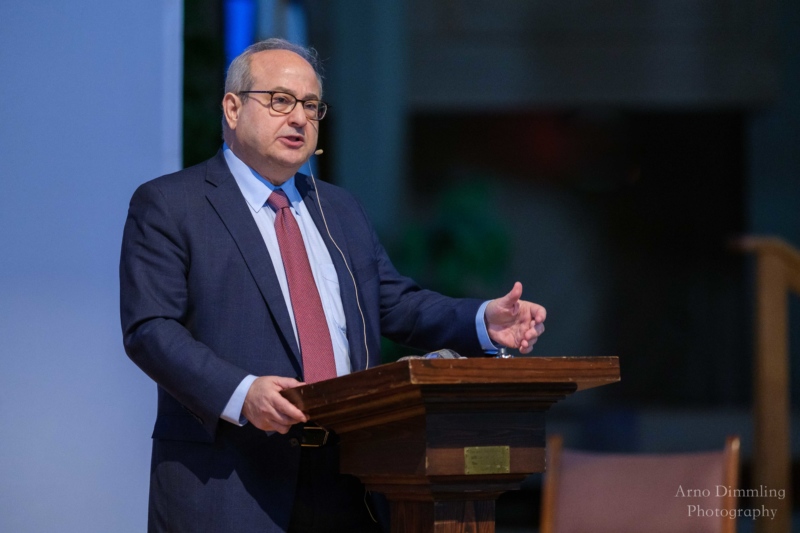Colombia-Venezuela Relations: What Are the Prospects?
Colombia and Venezuela have a history of rocky relations characterized by short bursts of improvement and deterioration.
On December 6, 2019, Michael Shifter, President of the Inter-American Dialogue joined the World Affairs Council of Hilton Head to discuss the current situation in Venezuela. Shifter remarked on the events in Venezuela that led up to the Chávez and Maduro’s governments, the economic and humanitarian crisis that is ongoing in the country, the complexities of US policy options going forward.
"Today it is hard to overstate the ruinous state of affairs in Venezuela. In the past several years we have witnessed not only the destruction of democracy and the destruction of an economy, but the destruction of a society, the destruction of a country. If we were to imagine today the most optimistic scenario for Venezuela, it would take at least a generation to recover from the current disaster."
"80 percent of Venezuelans want a change of government. Maduro is immensely unpopular. So, what keeps him in power when the country is in shambles and he is unpopular? Mainly the high brass, the upper echelons of the military who have stuck with him so far. Many lower level military officers have been jailed for being suspected of betraying Maduro. Second, this is not only an authoritarian government or dictatorship, but one involved in widespread criminality. It serves as a transit point for drug-trafficking and other illicit activities. Many of these people who have benefited over the years from this boom and this illegal trade have an interest in keeping Maduro in power. They have a lot to lose. Finally, for many there is still a Bolivarian revolution going on. There is an ideological component for why Maduro is still in power. People don’t want to end the revolution. Maduro may be at 13 percent but Chávez is at almost 60 percent support in Venezuela."
"At his height Guaidó had almost 60 percent support. Unfortunately, because attempts for a transition to a democratic government have not worked out, he is down to some 38 percent support. The strategy he pursued with the support of the United States and the Trump administration simply didn’t work out. The idea was if you bring a lot of people to the streets, which Guaidó was able to do in January and February of last year, the military would see the writing on the wall and would abandon Maduro and join Guaidó. That simply has not happened."
"No one can predict when there will be a change in the regime to move towards a democratic order and democratic rule. Some believe it is imminent. Some say Maduro can’t survive. Of course, they’ve been underestimating him since he took over from Chávez in March of 2013. How many people said then that his days were numbered, and here we are in December 2019 and there’s no sense that he’s not in complete control. Others predict that this is going to last for a long time, like Cuba. Why not? It’s still an oil producer. It’s destroyed but does the destruction of the economy mean that Maduro finished? Not necessarily."
[audio mp3="https://www.thedialogue.org/wp-content/uploads/2019/12/2019-12-06-Shiftner-2.mp3"][/audio]
Colombia and Venezuela have a history of rocky relations characterized by short bursts of improvement and deterioration.
On August 7, an important chapter in Colombian-Venezuelan relations that has coincided with the presidencies of Alvaro Uribe and Hugo Chavez will come to an end. These last eight years have been a rollercoaster, with moments of great tension but also occasional pragmatism.
While Santos is familiar with Chávez’s unpredictability and knows as well as anyone where the FARC rebels are and what they are up to, he also knows the economic stakes for Colombia.
 World Affairs Council of Hilton Head
World Affairs Council of Hilton Head